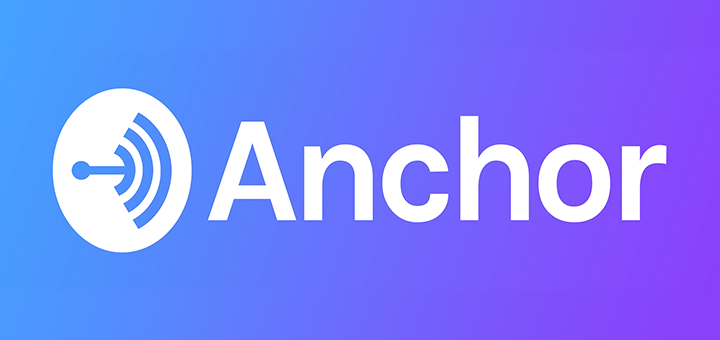Anchor Podcast touts itself as “the easiest way to make a podcast” their tagline reads “Everything you need, 100% free.” Let’s dive into what Anchor.fm is all about.
Anchor is a podcast app owned by Spotify. Anchor is attempting to be the “one stop shop” for podcasters without an extensive technical background. They follow a “vertical integration” model, meaning that you can record your podcast using Anchor, distribute your podcast through Anchor, and then monetize with Anchor. While people became comfortable “hopping on Zoom” during the COVID-19 pandemic, podcasters became accustomed to “hopping on Anchor” to record.
In years past, Anchor’s primary selling point was the ability to record podcasts on your smartphone. In 2016, when this technology was first introduced, Anchor left a lot to be desired. Over time sound quality improved, podcasts hit the mainstream, and Anchor added the bells and whistles necessary to attract podcasters to their app.
In 2020 Anchor has morphed from the “record a podcast on your phone app” to a serious podcast hosting service with a myriad of features that podcasters typically pay for through hosting services. They offer 100% free hosting, development of your shows RSS feed, total distribution, monetization opportunities, and the ability to edit a podcast straight from your phone.
Something significant that Anchor offers is unlimited free hosting. Most podcast hosting services charge monthly fees depending on the amount of content distributed through your show.
This service is great for new hosts entering the space. Broadcasters interested in hosting a show for the first time without  access to microphones, editing software, or any idea how to get onto Spotify or iTunes can simply download Anchor and compete with their favorite shows. Anchor’s monetization opportunities include brand partnerships directly linked to Anchor, as well as the creation of a “donation” page for listeners to support your show.
access to microphones, editing software, or any idea how to get onto Spotify or iTunes can simply download Anchor and compete with their favorite shows. Anchor’s monetization opportunities include brand partnerships directly linked to Anchor, as well as the creation of a “donation” page for listeners to support your show.
The primary drawback with Anchor podcasts is the quality. Anchor allows hosts to produce and publish mid-level content, perfect for beginners and sustainable to podcast hobbyists. Unfortunately phone interviews are just worse than face-to-face recordings, both have their benefits; but the literal space between guest and host shines through in phone interviews.
That brief critique aside, Anchor has grown a tremendous amount in just four years. They have found their lane in the podcast space and seem to be adapting to what their users need. After personally using Anchor as a guest on a new podcast, it would be how I recommend new podcasters start their shows.

 Our TOPPODCAST Picks
Our TOPPODCAST Picks  Stay Connected
Stay Connected
 access to microphones, editing software, or any idea how to get onto Spotify or iTunes can simply download Anchor and compete with their favorite shows. Anchor’s monetization opportunities include brand partnerships directly linked to Anchor, as well as the creation of a “donation” page for listeners to support your show.
access to microphones, editing software, or any idea how to get onto Spotify or iTunes can simply download Anchor and compete with their favorite shows. Anchor’s monetization opportunities include brand partnerships directly linked to Anchor, as well as the creation of a “donation” page for listeners to support your show.